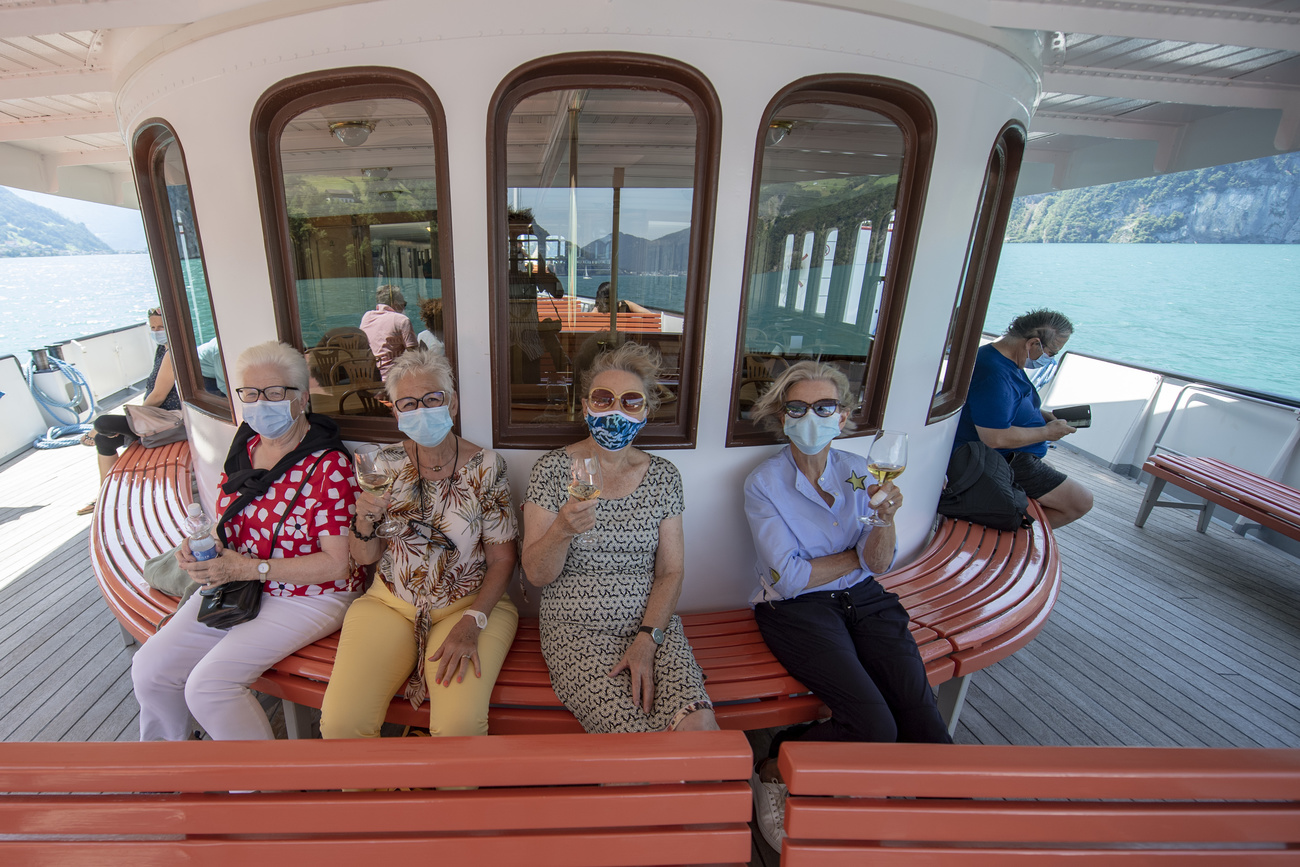
Mandatory masks well accepted on Swiss public transport

Passengers on Swiss trams, buses, and trains have adapted well since a rule requiring face masks was introduced a fortnight ago. However, boat operating companies say they are losing business.
The Swiss government decided that masks would become mandatory on all forms of public transit as of July 6 for everyone aged 12 or older. Previously, it had simply recommended masks.
Two weeks later, the Swiss Federal Railways report that “practically everyone” wears a mask onboard. Passengers are allowed to remove their masks in order to eat or drink.
According to Postauto, 95% of its bus passengers wear masks. Bern and Zurich’s public transport operators report similar numbers, as do cable car and ship operators.
Yet boat companies say they are losing business since the rule also applies to the open-air sections of their vessels; and it seems the prospect of cruising in a face mask is a turn-off for would-be day-trippers.
“Many people on the outer deck don’t understand why masks are compulsory there,” Stefan Schulthess, Managing Director of the Lake Lucerne Navigation Company (SGV) and President of the Association of Swiss Shipping Companies, told Keystone-SDA. He said SGV had noticed a 10-20% drop in passenger numbers since masks became compulsory; numbers had already been down by 50-60% on last summer.
Now the shipping association hopes to negotiate with the federal government again. “It is very difficult economically, because many shipping companies are fighting for their survival,” said Schulthess, noting that the companies would be willing to halve the maximum number of guests they can carry for the sake of social distancing.

In compliance with the JTI standards
More: SWI swissinfo.ch certified by the Journalism Trust Initiative






























You can find an overview of ongoing debates with our journalists here . Please join us!
If you want to start a conversation about a topic raised in this article or want to report factual errors, email us at english@swissinfo.ch.